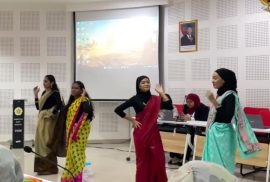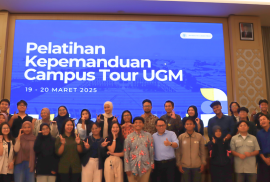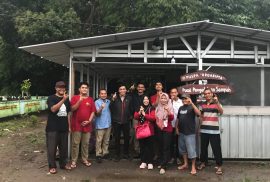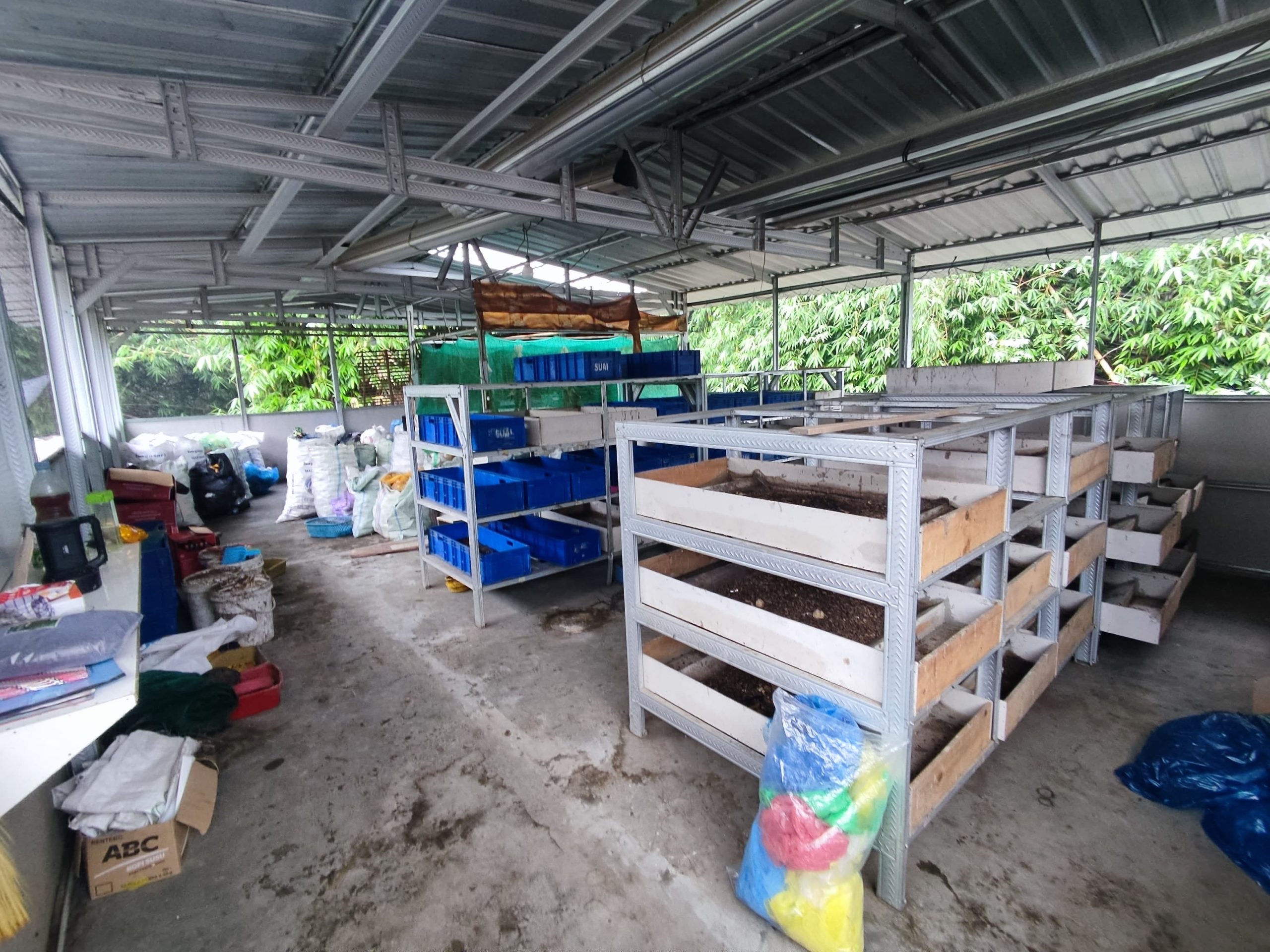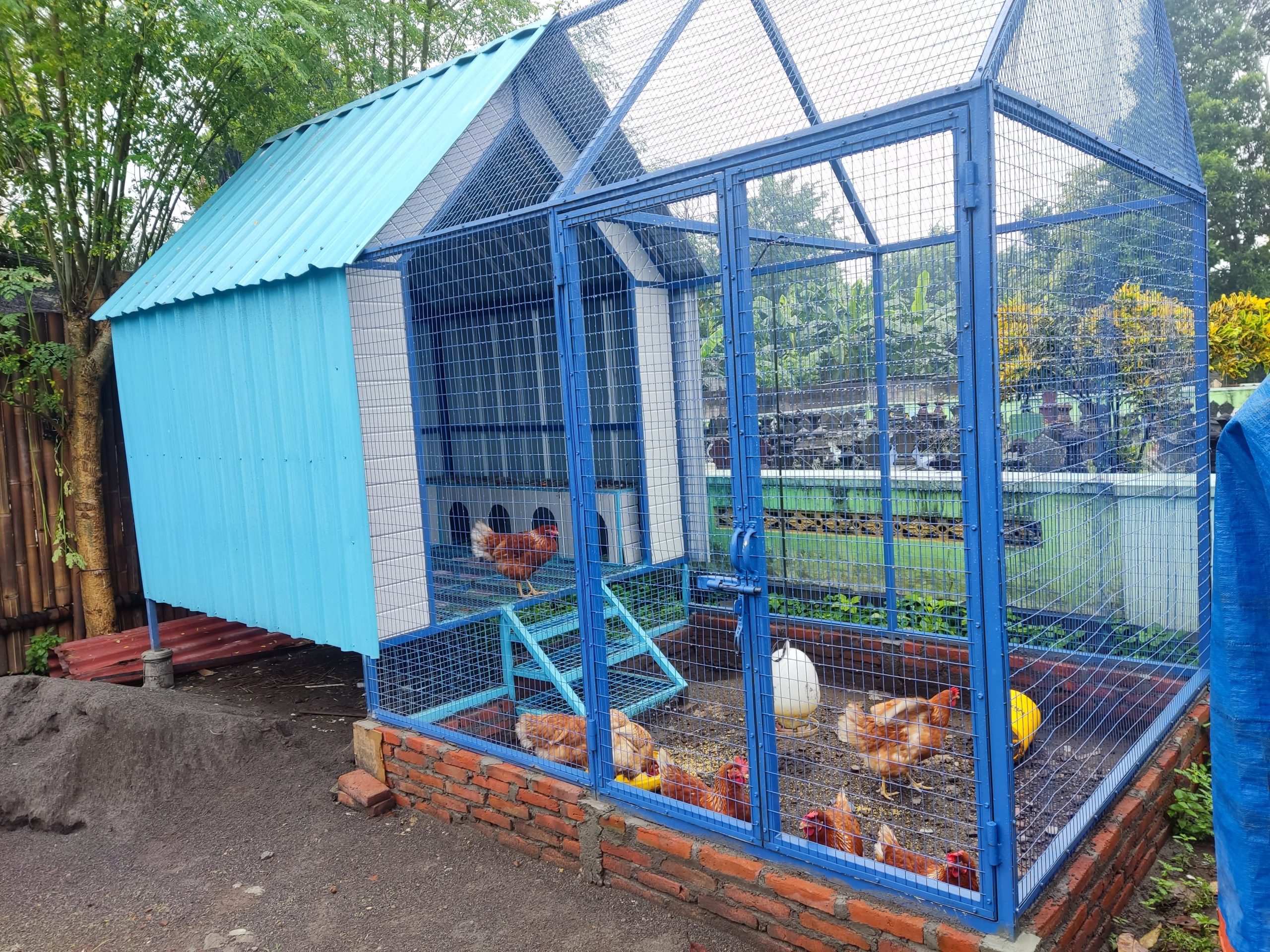Yogyakarta, 24/4/2025 — The Tourism Study Programme at the Faculty of Cultural Sciences, Universitas Gadjah Mada (FIB UGM), welcomed an academic visit from Politeknik Ibrahim Sultan, Johor, Malaysia on Thursday (24/4). The visit marked a valuable opportunity for knowledge exchange and the strengthening of international networks in the fields of tourism and culture.
In a warm and engaging session, both institutions presented their academic activities and flagship programmes. Students and lecturers from both sides shared experiences on curriculum development, industry practices and research, as well as approaches to tourism education.
The event continued with an interactive bonding session. A relaxed atmosphere was created through ice-breaking activities involving all participants, followed by a traditional dance performance by students from Politeknik Ibrahim Sultan, which received enthusiastic applause from the audience.
This visit is expected to be the starting point for further collaboration between the Tourism Study Programme of FIB UGM and Politeknik Ibrahim Sultan, particularly in future capacity-building initiatives.
[Public Relation Faculty of Cultural Sciences, Bulan Churniati]

